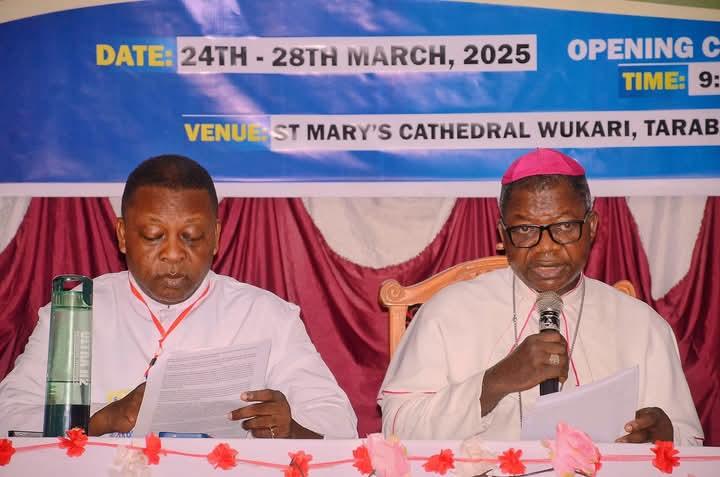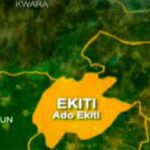The Catholic Diocese of Wukari, Taraba State, has called on Governor Agbu Kefas to include Peace Education in the school curriculum at all levels to address the prevailing violence across the state.
This was contained in a communique issued at the end of the Second General Assembly of the Diocese, signed by Bishop Mark Nzukwein and Rev. Fr. Simon Akurega, the Chancellor of the Diocese.
The church noted that the prevailing security challenges, especially in the southern part of Taraba, are obvious consequences of ignorance, which can be addressed through strategic education and dialogue.
The diocese insisted that “Christians, Muslims, and adherents of the African Traditional Religion in Taraba State should establish interfaith peace committees to discuss and resolve conflicts. Community-based peace initiatives involving traditional rulers, youths, and stakeholders—through peace campaigns, town hall meetings, and workshops—will go a long way in promoting unity and peaceful coexistence. The government should ensure justice and equitable access to resources by all in the state as a way of addressing some of the root causes of conflicts. In this regard, the government should ensure the return and resettlement of Internally Displaced Persons (IDPs) to their homes and provide adequate security for them.”
ALSO READ:LAWMA official dies as bus, truck collide in Lagos
Addressing the issue of Catholic schools taken over by the government, the church urged Governor Agbu Kefas to return the schools to the Church, emphasizing that the original aim of setting up the schools would be defeated if they are not managed by the Church in a way that incorporates moral discipline and academic excellence.
“In the pursuit of educational excellence, Catholic schools in Taraba State exemplify models of quality education that combine academic rigor with holistic development. These schools foster nurturing environments that emphasize moral values, critical thinking, and community engagement. By juxtaposing faith-based principles with contemporary educational practices, Catholic schools not only prepare students for academic success but also cultivate responsible and compassionate citizens. Our commitment to inclusivity and character formation serves as a benchmark for educational standards in the state, inspiring a collaborative approach to learning that benefits the broader community. We advocate for integral formation that emphasizes moral formation and academic excellence in all schools in Taraba State.”
“As a result of the takeover of Catholic schools by the government, the Church’s initiatives were stifled, and the quality of education in Nigeria suffered setbacks. The numerous problems affecting Taraba State, especially southern Taraba, are very obvious—ignorance, insecurity, poverty, discrimination, to mention but a few. We cannot confront these challenges without investing in the provision of quality education.”
“While the Church remains a religious institution, it nonetheless exists in a secular world and should, by the nature of its human feature, enjoy the support of the government. In Taraba State, the Church and State should collaborate in providing quality educational services to the people. We call on the government to return schools taken over from the Church, and we also urge it to support the Church by upgrading and sustaining facilities in our schools, knowing that those attending these schools are also citizens of the state.”
The Church also called on the state government to ensure social justice and equity for all and to urgently facilitate the safe return of all those displaced by various crises, especially in southern Taraba. This, the Church said, would demonstrate the political will to end crises in the area and accord all citizens the right to live and operate freely within the confines of the law, irrespective of ethnicity, religion, social class, or political affiliation.
WATCH TOP VIDEOS FROM NIGERIAN TRIBUNE TV
- Relationship Hangout: Public vs Private Proposals – Which Truly Wins in Love?
- “No” Is a Complete Sentence: Why You Should Stop Feeling Guilty
- Relationship Hangout: Friendship Talk 2025 – How to Be a Good Friend & Big Questions on Friendship
- Police Overpower Armed Robbers in Ibadan After Fierce Struggle






